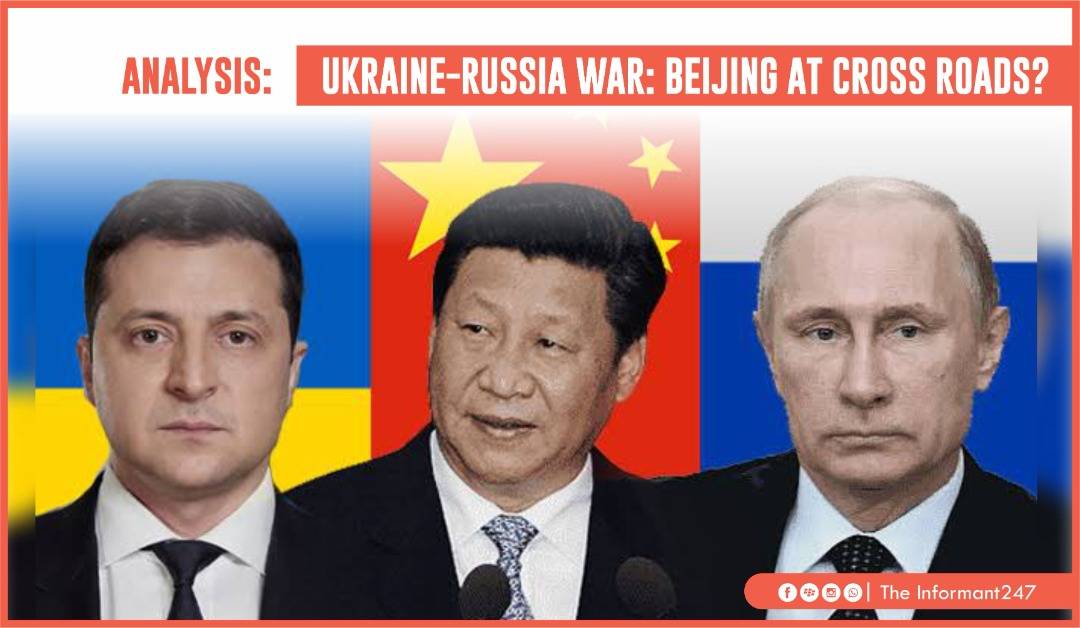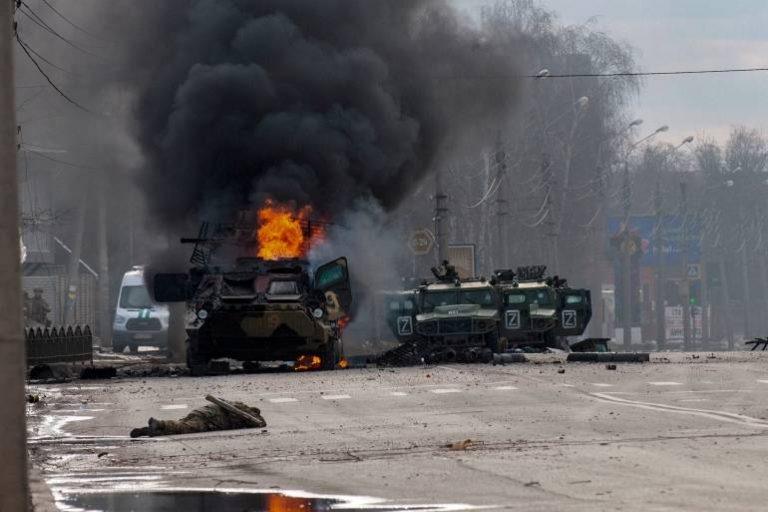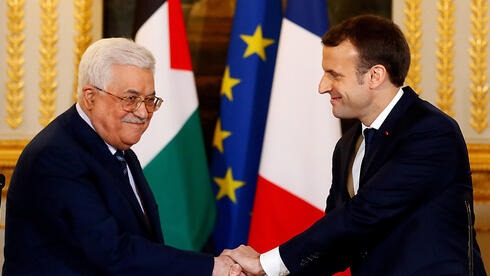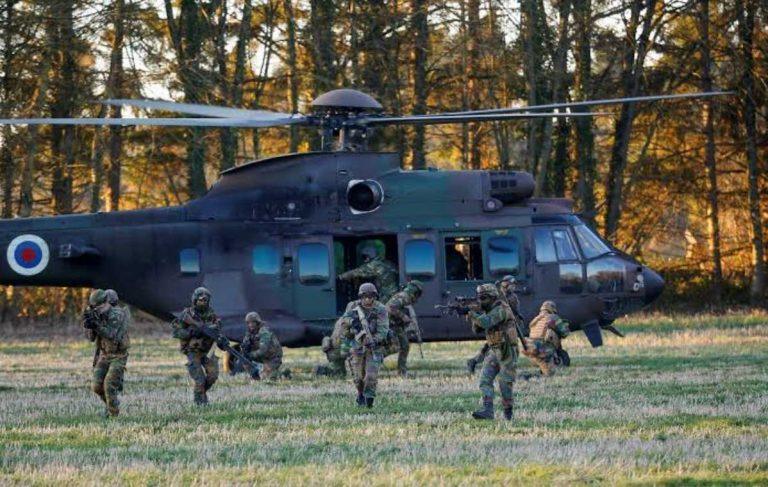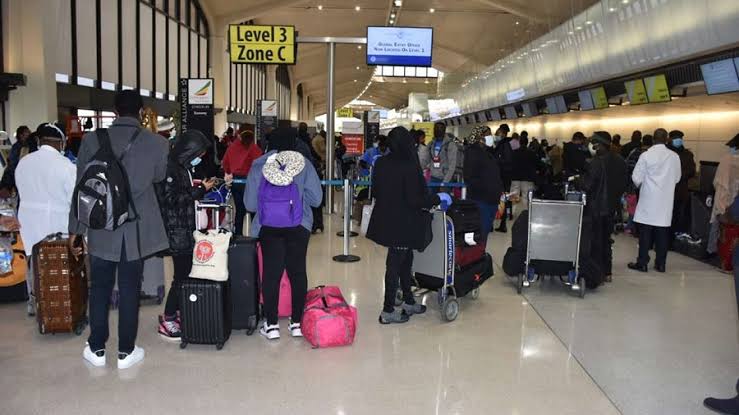ANALYSIS | Russia-Ukraine war: Beijing at crossroads?
China’s successful hosting of the 2022 Olympic and Paralympic Winter Games consolidated its position as an indispensable state actor in international affairs. A one-party state led by the Chinese Communist Party (CCP), its economic strength commands global attention and influence. Doubtlessly, every action or inaction of the one-party state shapes the course of events in an increasingly interconnected world. As a global heavyweight, China holds a crucial role in the peaceful resolution of the Russia–Ukraine conflict. Yet, it now faces a delicate balancing act: standing by Moscow, its closest strategic partner, while maintaining ties with Kyiv, an essential player in its long-term economic ambitions.
Nexus
The Belt and Road Initiative (BRI), China’s flagship global infrastructure drive launched in 2013 under Xi Jinping, now counts over 135 state actors in its orbit. Notably, both Moscow and Kyiv are signatories to this multi-billion-dollar project, and Beijing maintains close economic ties with each. But the question remains: When push comes to shove, whose cause will Beijing embrace?

State of the war
Ukraine’s most powerful backer in the conflict remains the United States. In a recent video call, President Joe Biden cautioned his Chinese counterpart, Xi Jinping, against aiding the Russian Federation, a warning echoed by Washington’s Western allies at the March NATO summit held in Brussels. “China must abstain from supporting this war in any way,” NATO leaders declared in a rare joint and direct statement aimed squarely at the PRC.
For now, Beijing is treading a calculated middle line – avoiding overt support for Moscow while resisting pressure to condemn it. Framing its stance as being “on the right side of history,” China calls for a negotiated, dovish end to the conflict, yet continues to advance an anti-West worldview in which the United States is cast as the chief antagonist.
So far, the choice of words by top Chinese foreign policy figures in describing the inter-state conflict between the “Slavic brothers” has been carefully and diplomatically wired. Yet, should a worst-case scenario erupt, key players in global politics will be watching closely to see which path Beijing chooses. The question lingers: in the high-stakes gamble of war, is China at risk of backing the wrong horse?

Western lens
Sino-western relations in recent times have been overshadowed by discordance on sheer number of issues. Rather than moving toward resolution, a down-shift in diplomatic contact hits up every now and then. At the heart of these uneasy ties stands the United States. Washington, alongside several allies including London, a permanent member of the UN Security Council, staged a diplomatic boycott of the Beijing Winter Games. The United States cited alleged atrocities in Xinjiang as a primary reason, a charge that China has consistently rejected.
“The so-called genocide and crimes against humanity are blatantly sensational and false propositions,” Chinese Foreign Ministry spokesperson Hua Chunying asserted, encapsulating Beijing’s official line of denial.
Relations between the two powers have plunged to their lowest point in decades, with glaring differences surfacing in their dealings with Tehran and Pyongyang. Washington, the self-styled ‘Messiah’ of Kyiv, is seen in Beijing as little more than a ‘Devil,’ the loudest voice accusing China of systemic human rights violations. From bitter exchanges at the UN Security Council to simmering military rivalry in the Indo-Pacific, the fault lines are deep and widening. Given this climate, throwing its weight behind the US-led NATO stance on Ukraine is not merely unpalatable; it is strategically untenable. Such a move would be an off-the-table consideration from every angle of its foreign policy calculus. For Xi Jinping, the priority is clear: avoid actions that jeopardise China’s long-term goals while keeping options open if the global situation escalates.

China–Russia Bromance
Beijing and Moscow, permanent fixtures at the UN Security Council, share deep political and economic ties, bound by a mutual distrust of the West. Presidents Xi Jinping and Vladimir Putin, close allies well into their late sixties, skipped the COP26 Climate Summit in 2021, signalling their distance from Western-led forums. Their partnership spans trade, military cooperation, and strategic geopolitics, underpinned by a shared anti-West ideology.
In the run-up to the 2022 Winter Games, Putin’s visit to Beijing culminated in a 5,000-word joint statement pledging a “no limits” partnership. Moscow supports Xi’s Belt and Road Initiative, aligning it with Putin’s Eurasian vision, while natural gas deals like the $400 billion agreement signed in 2014 continue to deepen economic interdependence.
Today, with Russia now the world’s most sanctioned nation, the Kremlin may lean more heavily on China. Yet Beijing walks a tightrope: keeping Moscow close while maintaining ties with Kyiv, both of which are linked to its BRI ambitions.
For Xi, safeguarding China’s economic ascendancy outweighs blind loyalty – neutrality buys time, but in a crisis, Beijing’s choice may reveal where its true interests lie.
Follow Russia-Ukraine Crisis on The Informant247 Naija News Today.

